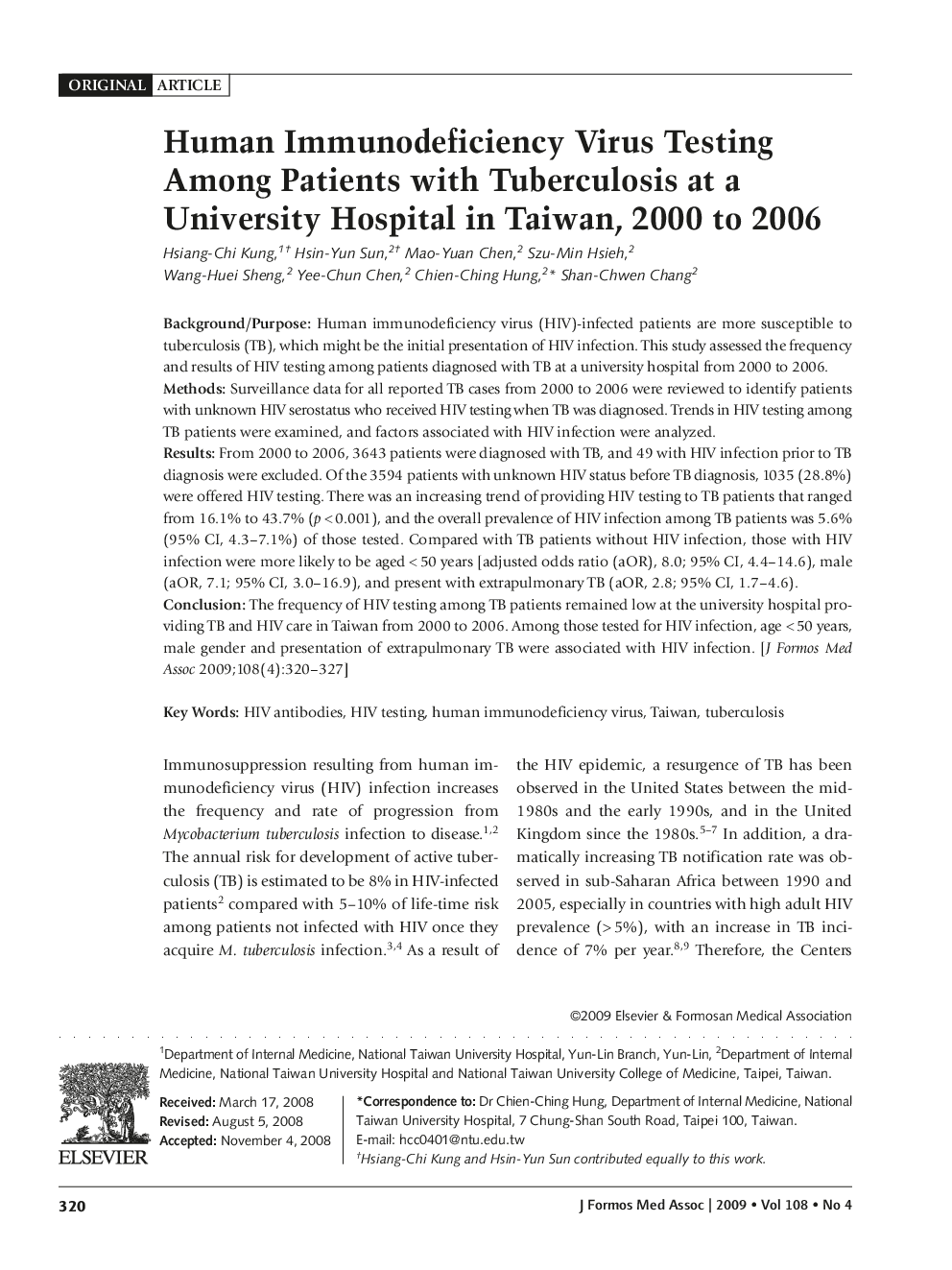| کد مقاله | کد نشریه | سال انتشار | مقاله انگلیسی | نسخه تمام متن |
|---|---|---|---|---|
| 3480360 | 1233490 | 2009 | 8 صفحه PDF | دانلود رایگان |

Background/PurposeHuman immunodeficiency virus (HIV)-infected patients are more susceptible to tuberculosis (TB), which might be the initial presentation of HIV infection. This study assessed the frequency and results of HIV testing among patients diagnosed with TB at a university hospital from 2000 to 2006.MethodsSurveillance data for all reported TB cases from 2000 to 2006 were reviewed to identify patients with unknown HIV serostatus who received HIV testing when TB was diagnosed. Trends in HIV testing among TB patients were examined, and factors associated with HIV infection were analyzed.ResultsFrom 2000 to 2006, 3643 patients were diagnosed with TB, and 49 with HIV infection prior to TB diagnosis were excluded. Of the 3594 patients with unknown HIV status before TB diagnosis, 1035 (28.8%) were offered HIV testing. There was an increasing trend of providing HIV testing to TB patients that ranged from 16.1% to 43.7% (p < 0.001), and the overall prevalence of HIV infection among TB patients was 5.6% (95% CI, 4.3–7.1%) of those tested. Compared with TB patients without HIV infection, those with HIV infection were more likely to be aged < 50 years [adjusted odds ratio (aOR), 8.0; 95% CI, 4.4–14.6), male (aOR, 7.1; 95% CI, 3.0–16.9), and present with extrapulmonary TB (aOR, 2.8; 95% CI, 1.7–4.6).ConclusionThe frequency of HIV testing among TB patients remained low at the university hospital providing TB and HIV care in Taiwan from 2000 to 2006. Among those tested for HIV infection, age < 50 years, male gender and presentation of extrapulmonary TB were associated with HIV infection.
Journal: Journal of the Formosan Medical Association - Volume 108, Issue 4, April 2009, Pages 320-327